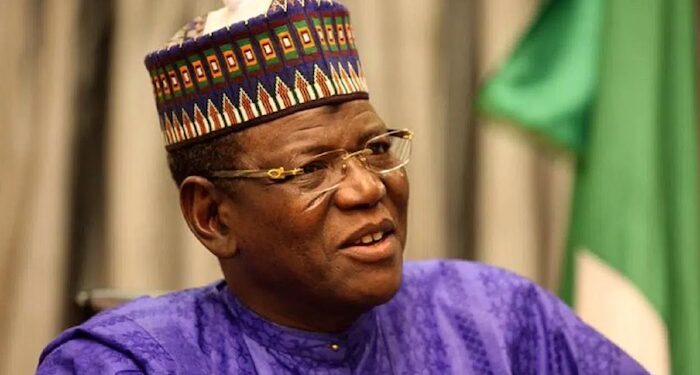Former Governor of Jigawa State, Sule Lamido, has criticized recent calls for a new constitution for Nigeria, asserting that the existing 1999 Constitution is not the problem, but rather its operators. Lamido’s remarks come in response to The Patriots, a group led by former Commonwealth Secretary-General Chief Emeka Anyaoku, which has been advocating for the enactment of a new constitution for the country.
In an interview with THISDAY, Lamido, who also served as Minister of Foreign Affairs, expressed his alignment with the views of elder statesman Tanko Yakasai, who has also opposed the call for a new constitution. According to Lamido, the issue lies not with the constitution itself but with how it is implemented by those in power.
“If you see smoke from the chimney and it is polluting the entire environment, don’t blame the chimney; find out where the smoke is coming from and deal with it,” Lamido stated, using the metaphor to emphasize that the root cause of Nigeria’s problems is the mismanagement of the constitution, not the document itself.
Lamido further argued that the frequent calls to amend or replace the constitution reflect a misguided belief that a new document will automatically solve the country’s challenges. He insisted that the key to good governance is the proper operation of the existing constitution by Nigerians themselves.
On the issue of government palliatives, Lamido was equally critical, describing the practice of distributing financial or material aid to citizens as degrading and counterproductive. He argued that palliatives should only be used in cases of natural disasters, not as a routine response to economic hardship.
“The work of government is not to give palliatives; the work of government is to develop an environment where people will be able to earn a living on their own,” Lamido said. He warned that by regularly giving out palliatives, the government is discouraging self-reliance and turning citizens into dependents.
Lamido called on the government to focus on creating an environment that fosters economic development and security, which would enable Nigerians to utilize their potential and become self-sufficient. He argued that palliatives, as currently used, undermine the dignity of the people and make them more dependent on the state.
In his comments on recent national protests, Lamido identified the underlying issues as reflective of broader contradictions within Nigerian society. He emphasized that these problems must be addressed holistically, rather than through piecemeal solutions like palliatives.
Lamido’s remarks underscore the ongoing debate in Nigeria about the effectiveness of the current constitution and the role of government in addressing economic challenges. His stance adds a critical voice to discussions about the direction of governance and constitutional reform in the country.


